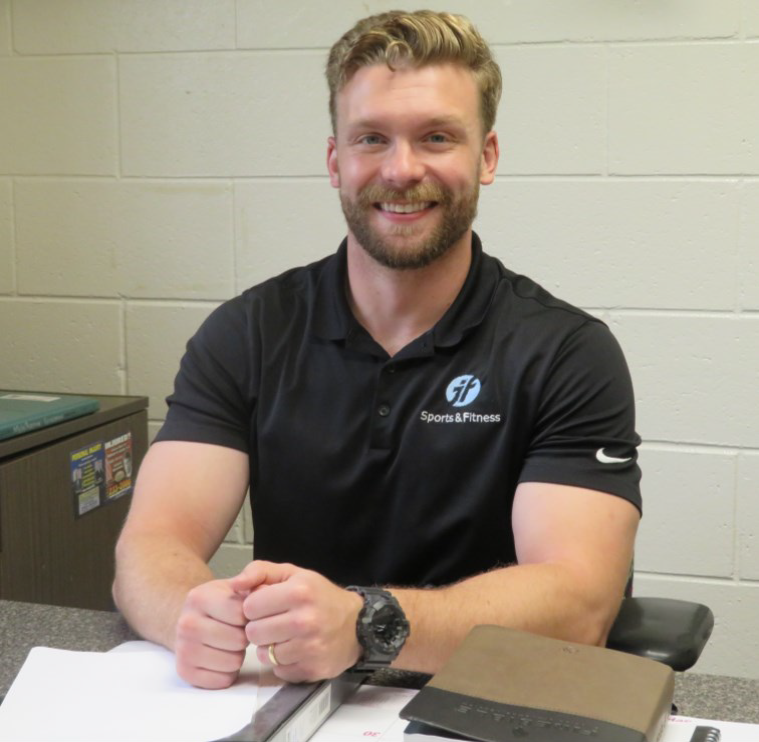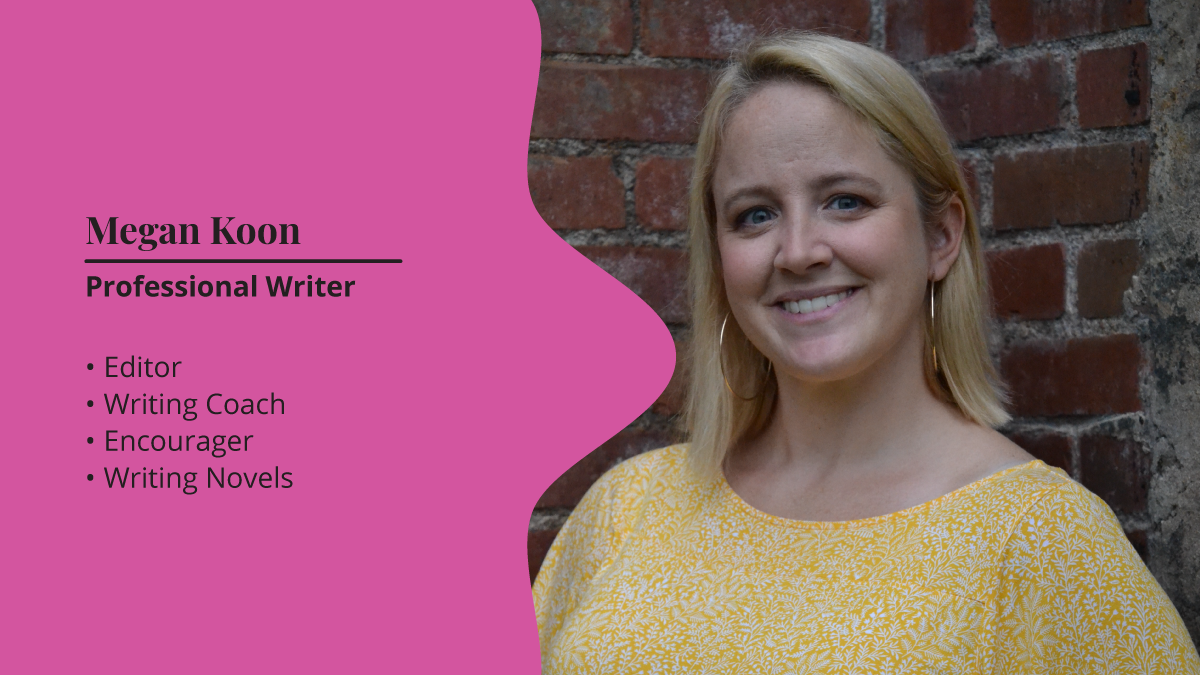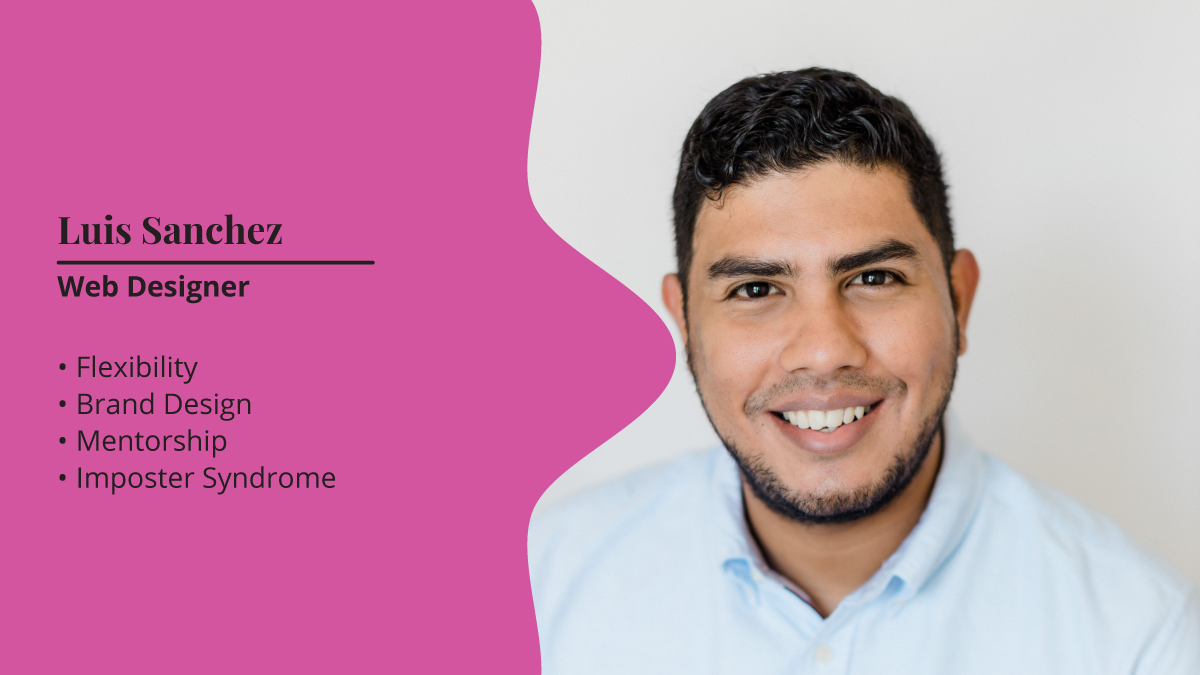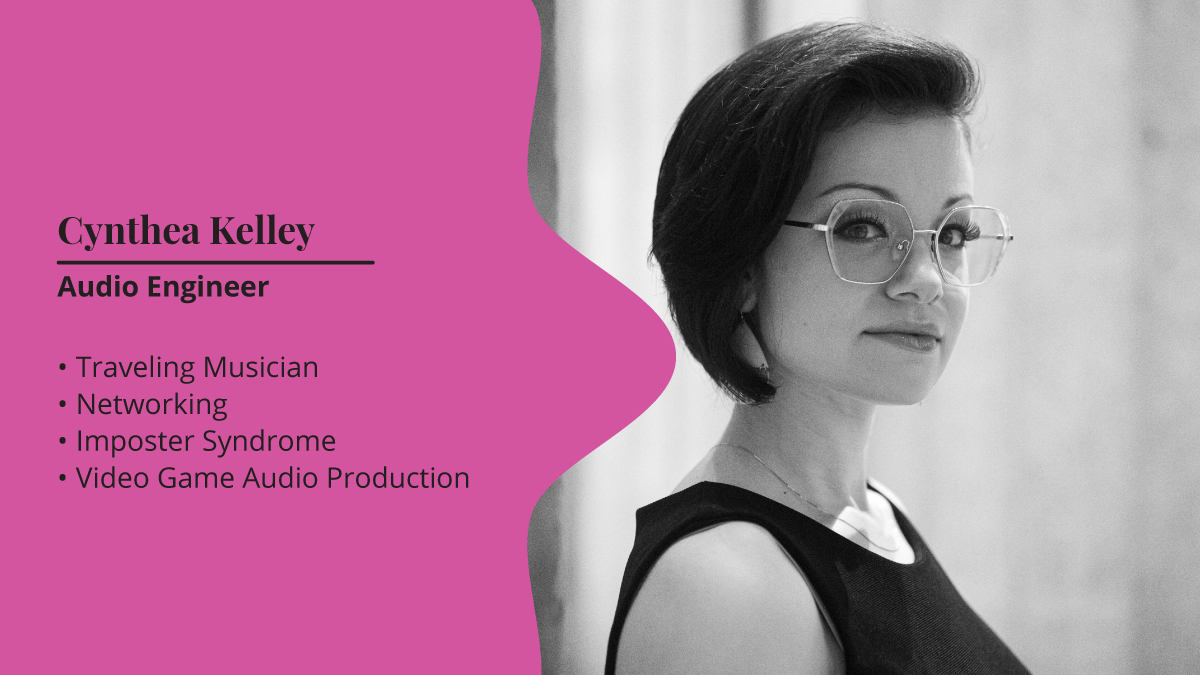“You need to get out there, doing things, while you’re a student.”
Cole Bullock is a Recreation Specialist at Perry Correctional Institution in Greenville, SC. He designs and runs creative and athletic programs for inmates.
Interview
Transcript
Cole Bullock
I’m Cole Bullock. I am a recreational specialist at Perry Correctional Institution in Greenville, South Carolina.
Haley Hansen
How long have you been working there?
Cole Bullock
This is my fourth year in June.
Haley Hansen
Can you walk me through your typical workday?
Cole Bullock
Yes. So a typical workday for me would be to open up a multipurpose facility that Perry has that has a couple classrooms, but more importantly, a gymnasium. And so first things first, I walk in, I prep everything, look for any sort of contraband items that might have been left over, get all the lights on, make sure all of my rec workers who I hire on certain inmates that I’m allowed that I allowed to kind of conduct different cleanings and programs and stuff, I get their stuff ready, I prepare their the workouts of the day, which would be a pre designed class of my own creation, and they’ll post them on certain boards.
Cole Bullock
And usually when the guys start coming in, we’ll start the bell being kind of a calendar for the week, when I’m looking for, you know, as far as the programming aspects of things, and we kind of just let the show roll.
Cole Bullock
Right now currently, we’re in our Pickleball League. So, inmates have had a chance from their dorms to sign up and create a team of doubles or singles. And so, we are just now building out the tournaments for them.
Cole Bullock
And as well as our Hobby-Craft program, as well, which is a program that allows for men to purchase certain items such as arts and crafts, different wood. Ah, surprisingly, different types of like saw blades, which you wouldn’t think they’d be able to have, but to do woodworking as well as leather working as well. So, different kind of tears that they’re able to build up to. And I will illustrate that with their programming and their needs and making sure that they’re, you know, in compliance with everything for what the state likes to see them. Have.
Haley Hansen
You said that your background was in sports ministry, right?
Cole Bullock
Yeah, so I double majored and Bible Theology and then Sports and Fitness Leadership. And so coming in, I guess, that degree specifically, if you transfer it to more of a secular university, that’s kind of like a sports ethics degree. As far as how the credits match up.
Haley Hansen
Ok. Would you say that has helped you a lot at this position?
Cole Bullock
Yeah, I mean, the the biggest thing for I think a degree is that once you have it on paper, you essentially have to learn how to put it into practice.
Cole Bullock
So I think, although my degree has certainly given me the framework to, you know, understand the need for why to do what I do, but the big process, I think of learning is just doing the reps on site. So there’s, there’s not really much preparation as far as what it’s like to train yourself for prison except for go to prison. Right. So but for the most part, yeah, I think the degree my degree itself has kind of inspired me on the idea that, hey, this is a very valuable career to jump into, because there is a need in order for recreation, you know, the hot topic, word is always rehabilitation, rehabilitate these guys, and you know, so we can bring them back out society and make them productive members.
Haley Hansen
What do you say was the biggest adjustment or challenge that you faced, when you started at Perry?
Cole Bullock
The biggest thing, the biggest challenge for us is just getting everyone on board with the idea that recreation is something that you would want in an institution. Depending on who you’re speaking with, it just, it’s a challenge to get everyone to kind of connect the idea that rehabilitation and physical fitness are actually a good coupling. You could have some staff members who could perceive the idea that guys are getting physically fit as a threatening thing, meaning they’re, you know, enhancing their physical capabilities and given them maybe that advantage when it comes to anything like physical altercations.
Cole Bullock
So, that was my first I think major hurdle was just establish, “Hey, if you program correctly in this institution, good programs create good security. Creating competent individuals that exert their energy in a healthy way, where they are establishing themselves in some some discipline and also giving them something that they enjoy. Which is a privilege that they really don’t want to get taken away from them. So, they kind of adjust their their mindset to be able to keep what they like.”
Haley Hansen
You mentioned, you are in charge of getting materials for the hobby crafting class. I imagine there’s some overlap in the conversations you mentioned with that, too. Like talking about how getting physically fit can be perceived as a threat you mentioned, like the saw blades and stuff?
Cole Bullock
Yeah, yeah. So oftentimes, we’ll get new staff members and they’ll do their orientation, and they’ll they’ll kind of walk into our hobby craft room. And you know, you’ll see their eyes get this big because they’re like, “They’re they’re allowed to do this? I don’t I don’t understand.”
Cole Bullock
And as long as like I said, as long as it’s programmed correctly, the Hobby-Craft, I’ve seen guys create things where I’m like, “There is no way you could have possibly made this, you know, behind bars, this is incredible. This looks machinery.” And you know, if you speak with them long enough, it’s like, “Listen, you know, I had nothing to do but learn this craft, and so day in and day out I had plenty of time to fail and improve upon my ability, and eventually you get pretty good at it.”
Cole Bullock
And so, some of these guys make amazing things. Some artists here draw like you with a picture off, you know, with a realism. I mean, it’s quite shocking the talent that happens when you you know, give a man enough time and I would say initiative to do something rather than nothing.
Haley Hansen
Do you think the hobby crafting creativity side of it is about as important as the physical fitness? Or do you think one is more helpful?
Cole Bullock
Yeah, these are, these are two sides of the same coin, the objective for us is probably the worst thing that you could do to someone who’s incarcerated is put them behind door, lock it away. And then in 40 years, unlock it, and then let them out and see if they’re any better for society, right? Since you you’ve only compounded the problem.
Cole Bullock
So the idea is we just want to keep them busy, wanting them to maybe perceive themselves in a different manner. So if you’ve ever coming in, and maybe life has handed you a deck of cards that’s not so favorable. And then when you’re back in prison, you realize “Hey, I am a little bit more talented than I thought. I got these crafts that I’ve learned, I can actually use this to make money on the street.” or “This is something that actually I prefer doing instead of, you know, hustling.” These are the moments that we’re trying to create with the inmates and especially with with working out is, you know, especially for those who are suffering with addiction, if they’re able to kind of place their energy and their mind and their efforts towards something that can create that dopamine effect within the mind. And it’s also healthy for them, you know, we would prefer them, you know, transferring their desire for the drug and replacing that with physical fitness.
Haley Hansen
Did you—would you say that you had something is an element when you were working there where you realized, like, it was a job that fit you?
Cole Bullock
It’s one of my favorite questions. Because just like many people, I’m coming into this institution with the idea, yeah, I’m gonna meet some broken guys, right? I’m kind of used to that being from a ministry background, and I’m completely okay with that. But, I had no idea what to expect. I mean, you know, I’m walking into a prison with Hollywood movies, given me the context for what I’m about to, you know, encounter, you know, so I don’t know them, and they’re gonna get stabbed, am I gonna get cussed out, am I gonna get, you know, there’s no telling. And I get my hined here. And I see an ecosystem that yeah, it’s complex. And it’s complicated and can be dangerous at some times. But more importantly, I see is just a desire for men to, to do something. To redeem themselves. To give themselves, essentially, another chance at life. And if you don’t think there’s nervousness behind the bars for freedom there is, because they understand and listen, if I’m gonna waste 20 to 40 years sitting here, you know, walk in a circle, I’m gonna walk out into a world that I don’t understand and going to be set up for failure. And so, a lot of us get nervous about that. And they want to be active, they want to, you know, try to see where, where their talents lie, where, you know, what, what society is, how it’s changing on the outside, and how can they be doing things in here to adapt to that reality, I simply want to provide that ability for them to change and adapt and to be successful. So, when they get back to their families are not burdensome to the community or for themselves. So, I grew great compassion, when I learned that the plight of someone that’s incarcerated, which is a far cry from when I came into, because like many people, I looked at those who were incarcerated and went, “Well, they did the crime. So, whatever happens behind bars happens, I don’t really care”. I can’t help but to care now, just because of the fact that I’ve seen it, I’ve seen the humanity in them. And I just want to support that. Someone’s looking to do better and get a redemption story in their life. I want to give them every tool that they can possibly have to make that dream come true.
Haley Hansen
Working with inmates, it’s a, it’s not a very visible profession. So, if someone is interested in doing that, are there any programs or organizations you’d recommend them check out?
Cole Bullock
Yeah. There’s a lot of groups there’s groups all the time that go into prisons. I think the main thing is if you if you want to know whether or not prisons a good fit for you, as far as a career, if you wanted to work programs in prisons, you just got to get your feet wet. A lot of ministries will come in here and just do support groups, sometimes colleges depending on you know, whatever program is happening will actually will come in here. I know we have a sociology class that we have students from the University I’m not sure which one comes in here and does class with the guys.
Cole Bullock
So ultimately, really, what I would suggest for people is if you’re if you’re looking and you want to be interested. Volunteer, in some capacity, contact that institutions chaplain and ask, “Hey, are there any groups that come in that would essentially support inmates or give me a chance to just interact with the guys” , and I’m sure he’ll connection to the correct third party when you’re in that environment. Just placing guys who have been on lockup back in the regular population that doesn’t tend to go well, you know, you kind of have to slowly reintroduce them back into society, a social capacity, because if you’re alone by yourself for years and years and years, you lose some skills, right? And you kind of get to slowly work yourself back into being able to handle other people and different, you know, situations.
Haley Hansen
Alright. Do you have any advice for current students who might be interested in this sort of thing you’re doing?
Cole Bullock
Yeah, well, I’d say just for any any field is that if you’re going to go through four years of university, and think that when you leave with a piece of paper, that that’s going to be kind of your ticket to get this dream job, you’re in for, unfortunately, a shock.
Cole Bullock
I had one of my mentors had established this idea that you’re going to go on your graduation day, you’re going to look to your left, then you go look to your right, and you’re going to notice hundreds of students all with this, essentially the same piece of paper, what’s going to distinguish you amongst the masses of people that graduated that year. And the idea is, is that you need to get out there doing things while you’re a student to increase your marketability. So, shaking hands. I think I’ve opened more doors, in my path in my career by a handshake than anything that a degree has ever offered me. So, they really want to be able to be networking and finding the right people to speak with, especially during school. That’s, you know, someone that’s able to give you some hours, you know, that’s similar to your field. I think that’s just irreplaceable, within your time at school.
Haley Hansen
And before we end today, is there anything else you think it’s important to say, for this, project?
Cole Bullock
Yeah, I think that speaking from my heart, corrections is a industry that needs support. It needs more of the public’s support to help us accomplish, I think, a goal that everyone should agree on. And that’s this idea that if we’re going to release these guys, we got to make sure that we’re being responsible with what we’re doing with them while we have them with the State. So, that’s a, that’s a group effort.
Cole Bullock
That’s, that’s a community effort. And that has to be a willingness for people that although you may have a certain opinion about those who are incarcerated, completely find, but that certain person might live in a neighborhood near you. So, it’s an investment to care about the guys that are behind bars. It’s an investment to have an interest in their improvement and their well being.
Haley Hansen
Alright. Thank you.
Cole Bullock
All right. Thank you



